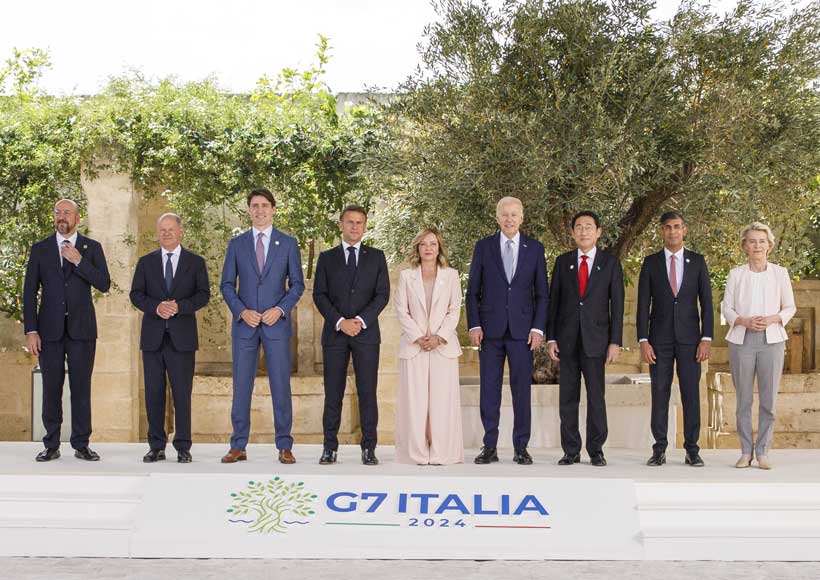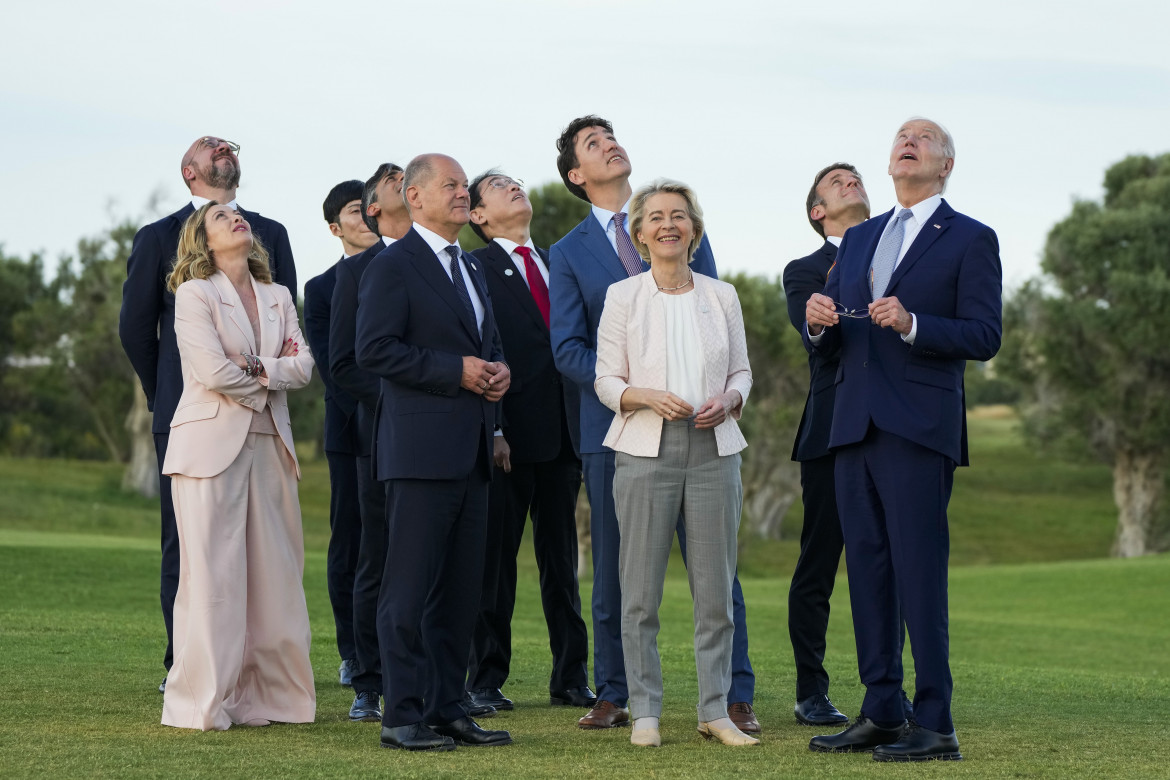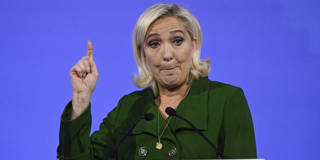A former tax investigator of the Hungarian Tax Office (NAV) says that high-level political orders led to the halt of an investigation against a prominent businessman, who months later established an alleged spoiler political party to further divide the opposition in the 2022 general elections.
Opposition parties say the case exposes the inner workings of the Orban regime and how the government intervenes directly in the work of investigative bodies to undermine the rule of law.
The investigation against Gyorgy Gattyan was unexpectedly terminated in the autumn of 2021 despite being close to prosecution, Lajos Tiszolczi told Hungary’s leading online political news channel Partizan on June 17.
Gattyan, who was recently ranked as Hungary’s fifth-wealthiest person with a net worth of €1bn, had a tax debt of HUF20bn (€50mn).
In the interview, the former tax official said that he learned from at least two separate sources that three people with very close government connections intervened in favour of Gattyan, who had for years fought the tax office in court after his assets were frozen in Hungary when he was ordered to pay tens of billions of tax debts. The businessman relocated much of his businesses to Luxembourg in the mid-2010s, but he continued to challenge the tax office in court.
Tiszolczi and others working on the case were sidelined before the case was finally closed.
A few months later, Gattyan announced the launch of a new political movement, Megoldas Mozgalom (Solution Movement) running on a quasi-centrist platform with a focus on boosting digitalisation in Hungary, allegedly to lure undecided voters away from opposition parties.
Polls at the end of 2021 suggested a tight race ahead of the 2022 general elections, as the opposition ran on a joint ticket against the incumbent conservative nationalists for the first time. A number of bogus parties popped up before the election to distract voters, but unlike small, fringe parties, Megoldas Mozgalom put significant amounts of funding into its campaign.
The ruling party also unleashed an unprecedented pre-election spending splurge, including the refund of personal income tax to families and the payment of the 13-month payments to secure its victory.
Fidesz seemed to have overestimated the threat posed by the joint opposition, as it won by the biggest margin since first sweeping to power with a two-third majority in 2010. Gatttyan's fringe party barely passed the 1% threshold, which meant it did not have to reimburse hundreds of millions of campaign money.
The former NAV official also recalled that Finance Minister Mihaly Varga dismissed high-ranking NAV officials in the summer of 2021, including the head of the tax authority.
After leaving NAV, Tiszolczi applied for a job at the Integrity Authority, the anti-fraud body tasked with overseeing EU funds set up by the government in late 2022 to meet demands set by Brussels to access locked development funds. The job post was withdrawn and he was told informally that he posed a risk to national security.
After the publication of the interview, the party chairman of Megoldas Mozgalom tendered his resignation and journalists working at a small online news site, financed by Gattyan, were dismissed.
The businessman is also involved as a financier of Teqball, invented by members of Gattyan's party. It combines the elements of football and table tennis, played on a special curved table. Teqball is gaining popularity worldwide and is even aiming for inclusion in the Olympics. Gattyan had secured state grants to help the expansion of the innovation abroad.
A Political Landslide in Hungary Challenges Orbán’s Regime and the EU
Dr. András Rácz
Jun 18, 2024
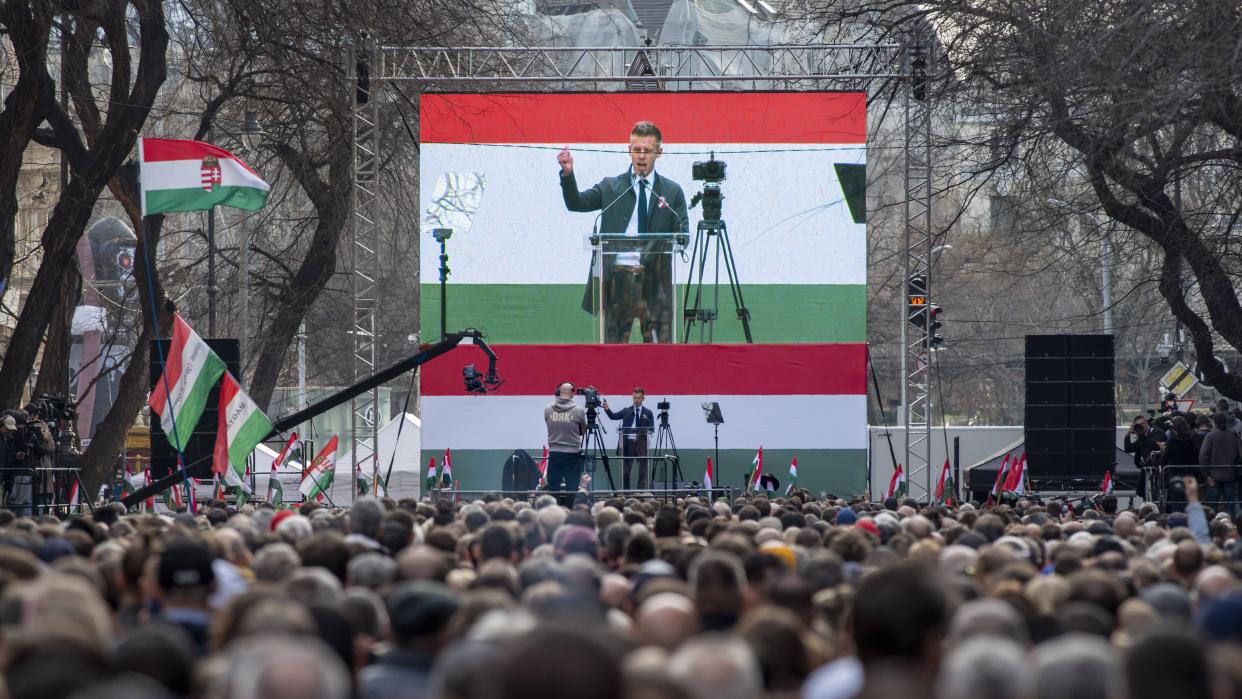
License
All rights reserved
Copyright owner
IMAGO / EST&OST
Viktor Orbán, expecting a far-right surge, previously framed the recent European Parliament election as a “revolutionary moment for Brussels.” Instead, it turned out to be a revolutionary moment against him at home. The new Tisza party of Péter Magyar, a former ruling party appointee, practically eradicated the traditional opposition forces in Hungary and weakened Viktor Orbán’s Fidesz. This has consequences not only for the country’s domestic politics but also its role in the EU.
PDF
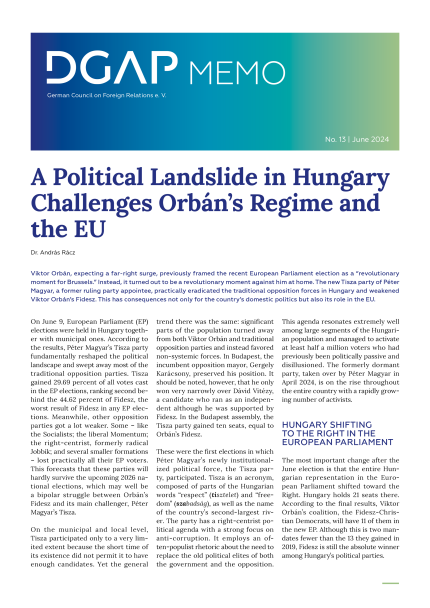
DGAP Memo No. 13, June 18, 2024, 3 pp.
application/pdf166.17 KB
On June 9, European Parliament (EP) elections were held in Hungary together with municipal ones. According to the results, Péter Magyar’s Tisza party fundamentally reshaped the political landscape and swept away most of the traditional opposition parties. Tisza gained 29.69 percent of all votes cast in the EP elections, ranking second behind the 44.62 percent of Fidesz, the worst result of Fidesz in any EP elections. Meanwhile, other opposition parties got a lot weaker. Some – like the Socialists; the liberal Momentum; the right-centrist, formerly radical Jobbik; and several smaller formations – lost practically all their EP voters. This forecasts that these parties will hardly survive the upcoming 2026 national elections, which may well be a bipolar struggle between Orbán’s Fidesz and its main challenger, Péter Magyar’s Tisza.
On the municipal and local level, Tisza participated only to a very limited extent because the short time of its existence did not permit it to have enough candidates. Yet the general trend there was the same: significant parts of the population turned away from both Viktor Orbán and traditional opposition parties and instead favored non-systemic forces. In Budapest, the incumbent opposition mayor, Gergely Karácsony, preserved his position. It should be noted, however, that he only won very narrowly over Dávid Vitézy, a candidate who ran as an independent although he was supported by Fidesz. In the Budapest assembly, the Tisza party gained ten seats, equal to Orbán's Fidesz.
These were the first elections in which Péter Magyar’s newly institutionalized political force, the Tisza party, participated. Tisza is an acronym, composed of parts of the Hungarian words “respect” (tisztelet) and “freedom” (szabadság), as well as the name of the country’s second-largest river. The party has a right-centrist political agenda with a strong focus on anti-corruption. It employs an often-populist rhetoric about the need to replace the old political elites of both the government and the opposition. This agenda resonates extremely well among large segments of the Hungarian population and managed to activate at least half a million voters who had previously been politically passive and disillusioned. The formerly dormant party, taken over by Péter Magyar in April 2024, is on the rise throughout the entire country with a rapidly growing number of activists.
Hungary Shifting to the Right in the European Parliament
The most important change after the June election is that the entire Hungarian representation in the European Parliament shifted toward the Right. Hungary holds 21 seats there. According to the final results, Viktor Orbán’s coalition, the Fidesz-Christian Democrats, will have 11 of them in the new EP. Although this is two mandates fewer than the 13 they gained in 2019, Fidesz is still the absolute winner among Hungary’s political parties.
The Tisza party received seven mandates, which is an unprecedentedly strong result from a newly established party. The leftist-populist Democratic Coalition party of former Prime Minister Ferenc Gyurcsány lost half of its previous four seats. Neither the Socialist party nor the Jobbik passed the five percent threshold. This was also true for the liberal Momentum, which had two seats between 2019 and 2024. Instead, the far-right, anti-Western, and pro-Russian Our Homeland (Mi Hazánk) party made it into the EP by gaining one seat.
Regarding their membership in the political groups of the new European Parliament, the European People’s Party (EPP) is already negotiating with Péter Magyar about the Tisza party joining its ranks. Manfred Weber, its president, openly invited Magyar into the EPP.
The loss of the seats of the two members of European Parliament (MEPs) from Momentum fits into the trend of liberal political parties getting weaker in this election. The fallout also extends to Renew Europe, the parliamentary group to which Momentum belongs. Meanwhile, the MEP from the far-right Our Homeland party will most probably join the Identity and Democracy (ID) group, thus contributing to the strengthening of forces hostile to the EU and NATO. Still, the rightist-conservative “revolution” in the EP that Orbán expected did not materialize. This election only made his own Fidesz party weaker.
It is not yet clear which political group Orbán’s party will join. Now having 11 MEPs, Orbán is a comparatively less valuable partner to any political group than he was in 2019 when he had two mandates more. Hence, his ambitions about forging a united Euroskeptic political group in the EP under his leadership were made even more unrealistic than they already had been. This is particularly true because Orbán has not become any less toxic as a coalition partner. Not only does Hungary have prevailing rule of law problems, but it also maintains close ties to Russia and China, the latter illustrated by the 3-day visit of China’s President Xi Jinping to Budapest in mid-May. Hence, it is far from evident that the European Conservatives and Reformists (ECR), dominated by Italy’s Prime Minister Giorgia Meloni, would risk losing other members for the sake of Orbán’s 11 seats. Meanwhile, if Orbán joined the ID, where the extreme-right Alternative for Germany (AfD) sat until May 2024 and intends to return, he would risk further damaging Hungary’s already strained ties with Berlin. If not invited by the ECR, it may well happen that Orbán waits out the end of the Hungarian Presidency of the Council of the European Union in December 2024 before starting to push for joining any other political groups to avoid any unnecessary tensions.
Hungary Is Preparing for a Low-Profile, Constructive EU Presidency
The reshuffling of the Hungarian political landscape does not affect the plans of the upcoming Hungarian EU Presidency. Unlike in France or Belgium, the relative weakening of the government did not result in early elections. Hence, the Hungarian government will continue to prepare for taking over the EU presidency in July 2024 and conducting it in an orderly manner.
In Hungary’s political system, EU affairs are run by a separate ministry that is led by János Bóka, an experienced, constructive technocrat. Bóka has served as Viktor Orbán’s “EU sherpa” for years and enjoys the prime minister’s trust. The fact that EU affairs belong to a dedicated ministry may well help mitigate the problems originating from the unusually close ties of Hungary’s Minister of Foreign Affairs and Trade, Péter Szijjártó, with Russia.
Rule of Law Procedure Will Become More Complicated
In the longer run, the restructuring of Hungary’s political representation in the European Parliament may still complicate the EP’s work related to Budapest. The reason is that the incoming MEPs from Péter Magyar’s Tisza party, unlike the previous MEPs from the Socialists and Momentum whom they are replacing, are fairly critical of the rule of law procedure. One of their core objectives is to restart the flow of EU funds to Hungary – a goal that they share with the agenda of Orbán.
Therefore, it will become more complicated for the EP to rely on the work of Hungarian MEPs in maintaining and supporting the rule of law procedure with continuous updates and assessments. In the previous EP, the two Momentum MEPs, Anna Donáth and Katalin Cseh, played a pioneering rule in doing so. In the new setup, however, there will be no Hungarian MEP able or willing to continue this work.
Germany Needs to Prepare for the Erosion of the Orbán System
The sudden rise of the Tisza party is another indicator of the gradual weakening of Viktor Orbán’s regime. Hungary’s low economic growth paired with its still high inflation, high budget deficit, and low wages stands in sharp contrast with how the elites close to Orbán keep accumulating wealth by misusing state funds. In addition to being challenged by the country’s economic troubles, the regime lost two prominent politicians this spring in an unprecedentedly serious scandal related to pedophilia. Consequently, both President Katalin Novák and Minister of Justice Judit Varga had to resign – the latter had been tapped to lead the EP list of Fidesz. These EP elections again demonstrated that resistance is growing against Orbán and his party within Hungarian society and that, despite the regime’s overwhelming domestic propaganda apparatus, it is less and less able to defuse these tensions.
Still, the Hungarian political system has been designed for prioritizing stability. The next parliamentary elections are scheduled to take place in spring 2026. Hence, unless Orbán decides to go for early elections – which he is unlikely to do, as he would most probably lose his current constitutional supermajority – Hungary will still be run by the Fidesz government for at least two more years. Growing domestic, economic, and foreign policy tensions are unlikely to reach any explicit breaking point; instead, a continued, gradual degradation is likely in the overall efficiency of governance in Hungary. The weakening Orbán system is highly likely to keep leveraging on its remaining veto positions in the European Union to demonstrate power at home and possibly get much-needed financial concessions from the EU. This will make Budapest an increasingly complicated partner in matters of common EU foreign policy.
BIBLIOGRAPHIC DATA






